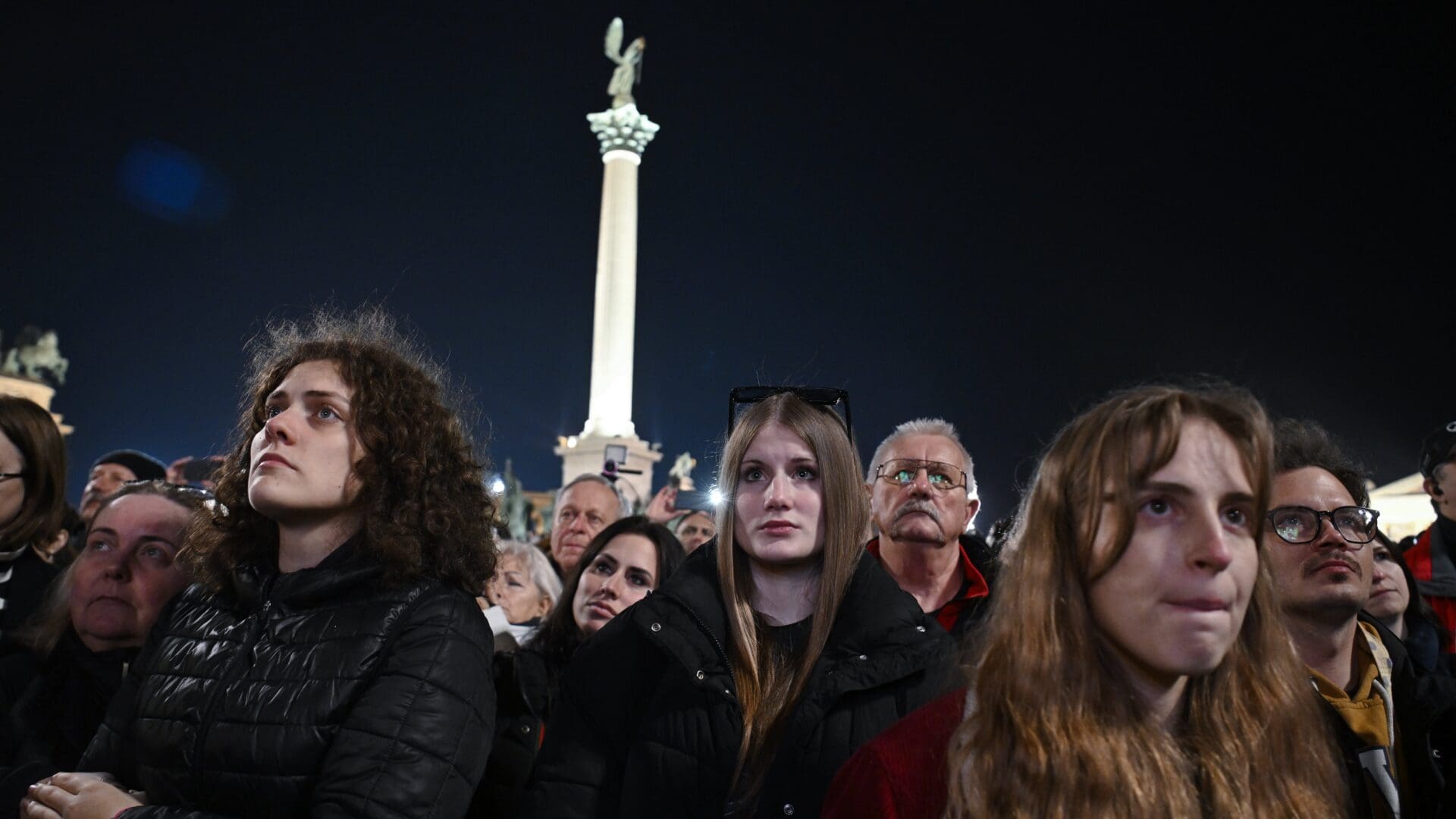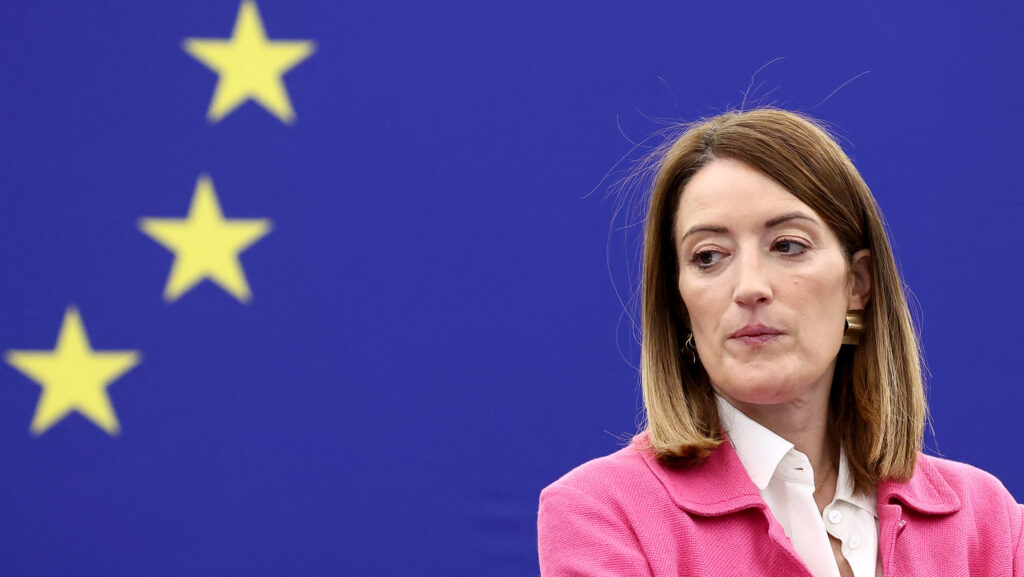In the heart of February, a wave of resignations swept through Hungary’s political and religious spheres. President Katalin Novák set the tone by tendering her resignation, a decision quickly echoed by Judit Varga, former justice minister and the lead candidate on Fidesz’ European Parliament list. The ripple effect continued as Zoltán Balog, former minister of human resources, Bishop of the Reformed Church of Hungary, and an advisor to President Novák, although reluctantly, also chose to step down from his Pastoral Presidency.
The key factor binding these resignations was a far-from-controversial incident involving the presidential pardon of a deputy school director. This individual had sought to shield the school’s director, later convicted of paedophilia, from facing criminal charges.
The departure of these accomplished and charismatic female politicians, alongside the Ministerial President of the Reformed Church, underscores the gravity of the situation and its far-reaching implications.
The resignations, akin to the chess concept of a queen sacrifice, are viewed as a significant setback for Hungarian conservatives—accomplished and highly effective politicians have exited the Hungarian public sphere. Despite this, the
principles that these politicians tirelessly advocated for continue to serve as the cornerstones of Hungarian conservative politics.
The unwavering commitment to preserving state sovereignty amidst the turmoil of European integration and upholding the state’s responsibility to safeguard children remains non-negotiable.
Particularly concerning the latter, an unprecedented national unity has taken shape. Labelled as the ‘pardongate’ in Hungarian public discourse, the matter has come to resemble more of a constructive dialogue than an antagonistic political debate. This sentiment was underscored by the 16 February ‘influencers’ demonstration’ titled There Are Monsters Out There — Standing Up for Children, the Victims and a Healthy Society, which highlighted that there is a unified stance on the issue.
With the influencer phenomenon being rather new, many were guessing what these celebrities would be capable of; what would public figures who intentionally distance themselves from party politics accomplish when entering the political arena? Would they mobilize merely a few hundred people, or could they rally the masses? Would the event remain peaceful, or would the riot police find themselves tasked with clearing the streets of Budapest? And fundamentally, would the demonstration be marked by anti-government or anti-establishment speeches, or would it take a different trajectory altogether?
On 16 February, it turned out that the popular public figures and influencers from platforms such as Facebook, YouTube, TikTok, and Instagram gathered as many as a hundred thousand people, all deeply invested in the well-being of Hungarian children, to converge on the streets of Budapest. Marking one of the most substantial protests against measures of politicians in power since 2010, the event concluded mostly without incidents. The police had to intervene only to address a few minor disruptions by radicals after the demonstration.
And the event, in its essence, was not an anti-government protest.
The speakers predominantly echoed people’s expectation that the government provide adequate responses to the clemency scandal.
Three well-focused questions were raised during the event:
‘How does the government plan to secure that every child grows up in human dignity?’
‘What measures will the government implement to ensure all children receive a quality education preparing them for life?’
‘What initiatives does the government intend to introduce to allow every child to confide in someone if they are harmed?’
In less than 24 hours, the questions were promptly answered directly by the Hungarian Prime Minister. Viktor Orbán provided his responses during his 25th ‘State of the Nation’ address.
’In addition to the lessons, there are also tasks. The Hungarian child protection system must be strengthened. It must be revised, and the legal rules serving to protect our children must be supplemented—all the way from the Constitution to ministerial decrees. The ordeal of the victims places obligations on us. It compels us to strengthen the management and oversight of our child protection institutions, as well as the rules and restrictions applicable to the people working there. And we must submit all these to the National Assembly in the form of a new child protection legislative package. The hypocritical and two-faced Left can battle it out there. There, they will have a chance to fight on’, he emphasized.
By ‘hypocritical and two-faced Left’ he meant the majority of the Hungarian opposition parties. Once again, a fundamental error looms over certain political factions in the opposition, poised to plunge them into a serious misstep, and the misjudgement only deepens existing doubts about their governing capabilities.
The fact of the matter is that
the majority of the opposition parties (essentially the Left) is once again attempting to score short-term political points, this time exploiting the amnesty case.
Their chorus demands the entire government’s resignation, with a notable aversion to participating in the nomination and election procedure of a new president. Their rejection of taking part in the process extends beyond mere dissent; they openly challenge the legitimacy of the constitutional system, vowing allegiance to the Hungarian Fundamental Law only when convenient (i.e. when taking office as MPs for a salary much over the average Hungarian income).
Should these defiant opponents of the established order fail to rally behind the Prime Minister’s proposed constitutional amendment centred around zero tolerance for intentional crimes against children, and abstain from collaborative efforts to amend the existing child protection legislation, they risk scoring another own goal rather than a real one at last.
And this behaviour doesn’t sit well with the public: it makes the opposition’s political stance appear as simply ‘unimportant’. A telling sign is the notable absence of most opposition leaders from the 16 February demonstration, organized by unelected influencers. The few opposition figures present at Heroes’ Square observed the events in silence, adopting a seemingly ‘civilian’ stance.
The message of the demonstration carries a dual significance. Firstly, it underscores the fundamental importance of child protection to every conscientious Hungarian and emphasizes the government’s commitment to fulfilling this duty. Simultaneously, it serves as a stark reminder that Hungarian voters are desperately waiting for a swift transformation of the opposition landscape. Which leaves us with optimism, because, it appears, for these most recent organic (still not organized) substitutes of the actual opposition political parties at least some basic conservative values are not like water off a duck’s back.








